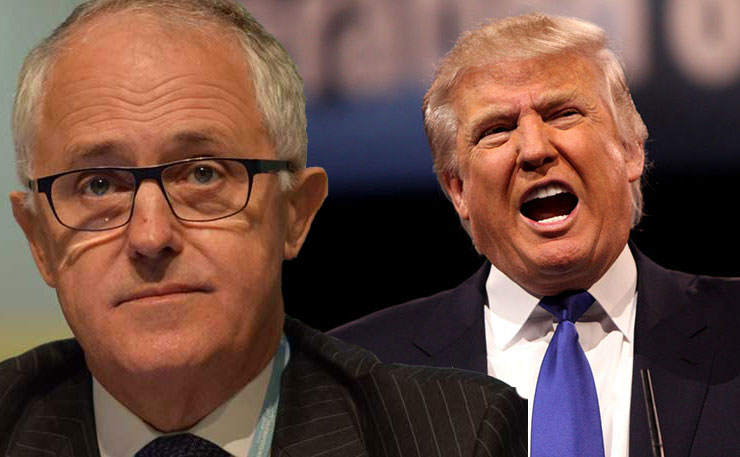If you read one story on how we ended up with stupid, rich white men running the world, then make it this one, by Sean Hosking.
Well, something had to give and Jeremy Corbyn’s success at the British election might be just the first sign of that something is happening, writes Sean Hosking.
For the last 40 years fat cats on the make, under the ‘neutral’ imprimatur of the ‘free market’, have effectively laid siege to the public realm, pilfering its assets, undermining its institutions, exploiting its workers and degrading its natural resources.
What is left are societies on the brink of breakdown, where clueless politicians robotically recite redundant ideological dogma, a shrinking middle class hocks its standards and hopes in order to remain solvent, the young nihilistically withdraw to the consolations of social media and virtual worlds, and gangs of lunatic political extremists surge in from the periphery like characters in a Mad Max movie, preying on the angry and disenfranchised.
On top of the whole teetering edifice sit eight individuals who now control wealth equivalent to that of half the world’s population.
In the midst all this, it’s perhaps fitting that in the United States and Australia two super wealthy beneficiaries of the neo-liberal ‘smash and grab’ era have pushed aside their political acolytes, rolled up their sleeves and, in our hour of need, heroically assumed executive control.
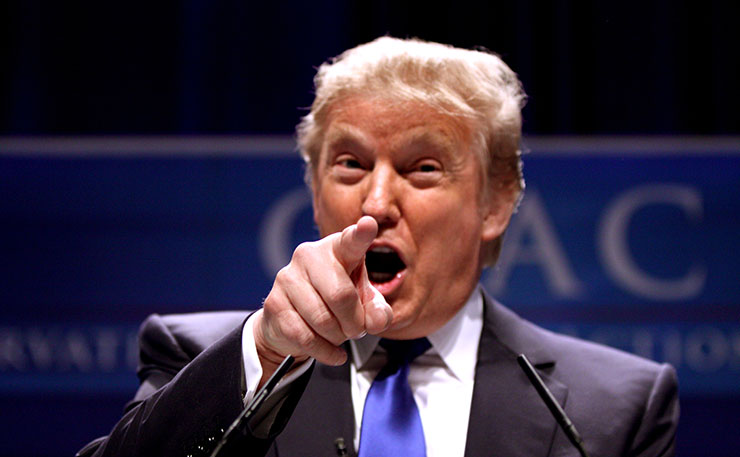
Donald Trump has consistently sought to differentiate himself from the ‘elite political class’ by reference to his status as a ‘very very (very) successful businessman’ whose capacity to make winning deals has made him eminently qualified to lead the free world. Citing the size of his bank balance, his penis, his tower, his…you name it, Trump has fashioned himself as the ultimate political outsider, a creature of the market and ipso facto the real world, whose wealth is the ultimate testimony to his superior intellect and acumen.
Closer to home our own wealthy businessman Prime Minister, having presumably long ago given up on developing a coherent unified political vision has seized on the Trumpian zeitgeist to offer his own political raison d’etre (of sorts), referring to the strong affinity between himself and the great man, and their mutual status as “very successful business men” and practical “dealmakers” who have “come late to politics”. Such men of achievement, he has suggested, were uniquely qualified for the business of results-oriented government.
Having gained significant public support on these grounds, what might therefore have constituted an opportunity to showcase their much vaunted superior ‘real world’ capacities has instead turned into a political pantomime of ineptitude that has done significant damage to that most sacrosanct of right wing shibboleths: that individual wealth and personal merit go hand-in-hand.
Exhibiting degrees of dysfunction several magnitudes beyond what was previously deemed politically survivable, Trump swings randomly from high farce to dystopian nightmare, driving the country evermore away from a serviceable relationship with reality and toward that flat-line moment when the distinction between truth and falsehood becomes undecipherable.
While in Australia the political decline has not been so spectacular, we appear to be caught in a national malaise as we wake up to the fact that the very successful businessman, innovator and visionary we thought we were getting as Prime Minister has turned out to be an idle blatherer with an uncanny knack for screwing things up (the republic, the NBN, climate policy, the budget, energy policy, double dissolution elections).

In light of this, it’s worth considering why at this stage, in our inexorable march to civilizational decline, we have turned to two representatives of the wealthy, elite class to extricate us from a crisis created in large part by their own greed and profligacy, and why the result has been so spectacularly bad.
A large part of the answer I would argue lies in recent changes in public perceptions of the wealthy and in particular the disappearance from public view of that perennial deadbeat relative of the much heralded meritorious rich – the stupid/idle rich.
Historically the stupid/idle rich were typically the inheritors of large fortunes. Anaesthetised by privilege and/or stupefied by a lack of stimulation, graft and lower facial features, they were distinguished by their abject unfitness for any kind of constructive or practical human endeavour.
Most commonly they were the aristocrats, nobles, peers, patricians, heirs and toffs derided for living lives of ignorant indulgence, moral decadence and bumbling incompetence: from the French Royal court playing parlour games at Versailles as the revolutionary masses gathered outside, to the British ‘tofficer’ in the first world war casually sending young waves of soldiers to their death over port and cigars, to the gallery of buffoons and aimless egotists who showed up in the popular fiction of writers such as Dickens, Fitzgerald, Wodehouse.
In more contemporary form they often show up as international playboys, doyens of the charity party circuit, generous patrons of the political right and nonentities famous for their shopping sprees, bitter marriage break ups and multiple drink driving convictions.

All in all they are individuals with almost no familiarity with the lives of average people, hopelessly afflicted with the kind of slack-jawed malaise that comes with never having to confront risk, exercise personal initiative or apply themselves to any human endeavour without the safety net of a luxury rehab clinic underneath them.
The meritorious rich on the other hand represented those who built their fortune from scratch due to their superior personal qualities and/or capacity for hard work. As popularised in the novels of Ayn Rand, they are the alpha ‘producers’ who typically tend to conceive of society the same way that a mining company considers a coal seam deposit.
Though they often turn up in comics as super heroes who utilise their exceptional capacities to save the public from disaster, in the real world the philanthropy of such individuals generally extends no further than delivering regular self-righteous sermons about how government measures to ensure their own enrichment will benevolently ‘trickle down’ like redemptive golden urine to the great unwashed masses.
The stereotypes of the stupid/idle rich and meritorious rich held sway in equal measure up until the commencement of the neo-liberal era in the early 1980s. At this time, in an age increasingly dedicated to the accumulation of capital and dominated by the rhetoric (if not the practice) of competitive free-market egalitarianism, all remnant class distinctions between legitimate old money and crass new money began to lose relevance.
As the windfall gains from neo-liberal ‘reforms’ began to accumulate, the rich were increasingly forced to justify their wealth with ever more strident declarations of their own worthiness. It was therefore no longer enough to understand the difference between a fondue fork and a chicken skewer, or to have a lineage that ran back to the third earl of Toffsbury. To have credibility now you had to do stuff, or be seen to be doing stuff, in the market.
In the subsequent mad clamour to claim for themselves the mantle of ‘self-made’, the stereotype of the stupid and idle rich all but disappeared. The aimless hooray Henrys of yesteryear who typically ended up choking on chicken bones, drowning in lakes or getting shot by their lover’s husband suddenly had life coaches, personal trainers and PR agents and morphed into immaculately coiffed ‘businessmen’ sporting ‘diverse and successful’ investment portfolios. If they died prematurely, now it was more likely to be from high speed boating accidents or paragliding mishaps.
Attitudes to wealth changed. Where in previous ages family wealth was a marker of cultural status, frantic attempts were now made to erase the stain of inherited wealth.
In some exclusive quarters, to question an individual’s parentage was now more about questioning the size of their ma and pa’s bank balance than their genetic or moral legitimacy. Multi-million dollar inheritances were typically referred to as ‘small business incentive loans’ or subsumed into moving personal narratives of early childhood disadvantage and hardship: the burden of great expectations, abusive nannies, boarding school traumas and early childhood horsing related accidents. The silver spoon morphed into an instrument of torture and everywhere you looked rich parents were being metaphorically bundled into cupboards, erased from family histories, or given down market revisionist makeovers.
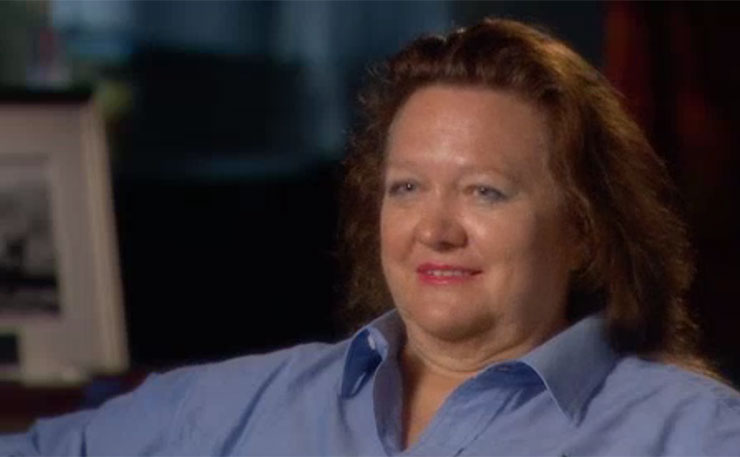
Inheritance denial was rife. Mining mega heiress Gina Rinehart for instance was famous for hyperventilating at the mere mention of the word heiress, insisting that the expansion of her father’s vast mining empire, achieved by investing the profits and royalties from her father’s vast mining empire, constituted grounds for all references to ‘obscenely large inheritance’ to be struck from the historical record. Apparently it was the thirteenth billion that was the hardest to make.
In the US, billionaires like Ross Perot and the Koch brothers championed anti-government welfare policies directed at the poor while downplaying or outright denying their dependency on the family welfare bequeathed to them by their rich parents. Similarly Donald Trump referred to his large inheritance as a “small loan” of one million dollars, barely enough to keep him in tanning solution and call girls for a month; and Malcolm Turnbull sought to obscure the importance of his substantial inheritance by scrubbing all references to the wealth of his late father and repeatedly referring to the fact that at one stage as a child, he was forced to endure the depravations of living in a flat.
The drive to individualise wealth was mirrored in the Business media. Forbes Magazine, the pre-eminent fanzine of the rich and powerful, routinely released its list of the 400 wealthiest Americans with a rousing narrative about the large number of self-made individuals on the list. Claiming in 2012 that over 70 per cent of the individuals had made their fortunes ‘entirely from scratch’, it proclaimed triumphantly that such a figure proved the continued viability of the America Dream.
The transformation in the public image of the wealthy was dramatic. Descending on mass from their penthouses and towers in factory stressed designer street wear (think Versace leather jackets with the labels cut off), and increasingly likely to be seen wolfing down hot dogs at the football rather than nibbling on canapés at the Opera, the rich and their enablers in the mainstream media set about disassociating themselves from all appearances of elite privilege and power.
While they spent their time investing the proceeds of ‘essential economic reforms’ in harbour-side mansions, prestige sports cars and annual holidays to St Moritz, the masses were invited to vent the anger and resentment arising from the corresponding drop in their own living standards at those now deemed to be the true possessors of elite privilege and power: social progressives, greenies, boutique coffee drinkers and inner city arts and crafts types. Cultural Marxism – a right-wing conspiracy theory in which old lefties clutching dog-eared copies of Marcuse were identified as the principle culprits for the world going to shit – became a thing.
Wealth was democratised, class substituted with character. Suddenly the magical rhetorical amalgam of ‘aspirational’ politics was in play. The working classes had abandoned their old class grievances and were now empowered to stand on their own two feet and assert their value in a market divested of all power imbalances, injustices and inequities. The difference between the rich and everyone else was now simply one of individual commitment, belief and attitude. As John Howard put it, the person on the street no longer envied the driver of the Rolls Royce because they expected that one day they’d be driving one themselves.
Yet despite this orgy of self-promotion and wealth legitimisation the fact was the stupid/idle rich had never gone away.
Contrary to neo-liberal mythology, the overwhelming majority of the earnings of the very wealthy came not from productive capitalist enterprise, innovation, creativity and hard work but from the magic money tree of capital gains, interest and dividend payments, often off the back of stock and real estate asset bubbles.
For every Elon Musk there were a multitude of Lord Layabouts; rentiers living the easy life off their capital which, in a neo-liberal growth economy geared toward maximising the profit share of national income and the return on investment accrued at exponential rates, no matter whether the recipient was sitting in a corporate boardroom or working on their tan on a beach in the Maldives.
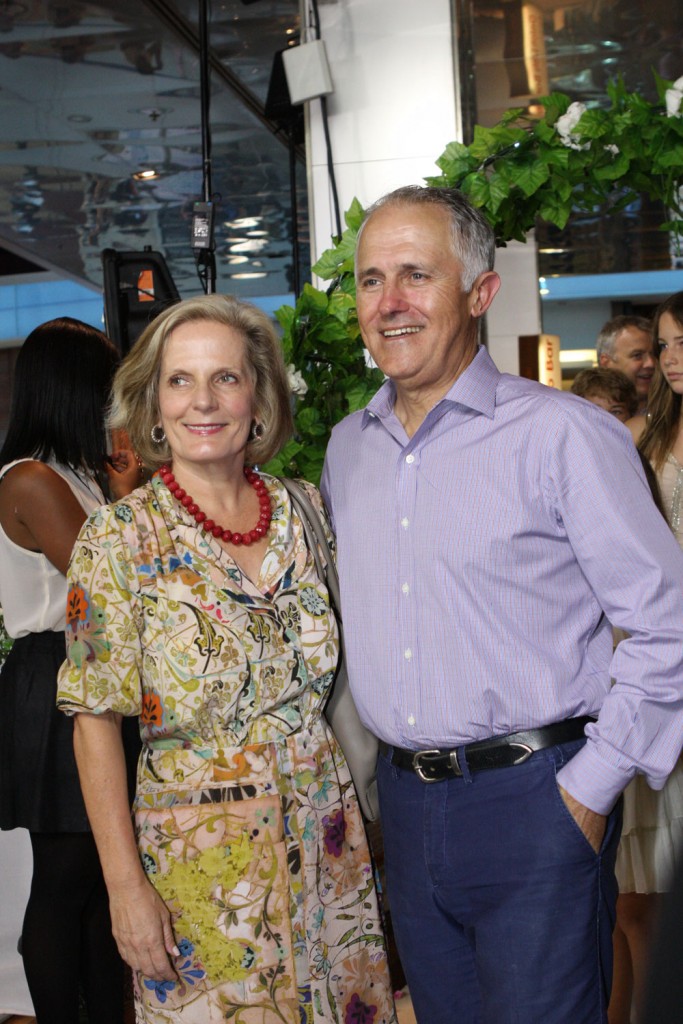
As Peter Martin wrote in regard to Australia’s super wealthy “very few of them have made their wealth by expanding what is possible…. Instead most have made money by doing things that could have done by anyone, such as being in the right place at the right time….”
And while much had been made of the rich as self-made progenitors of the American Dream, Research into the background of the Forbes top 400 in the US found that the actual number of those who could legitimately be called ‘self-made’ was not 70 per cent as claimed, but closer to 35 per cent. The trick was in how you defined ‘self-made’ and whether you could use the phrase ‘starting from scratch’ for individuals born into rich (though not necessarily super rich) families.
The Forbes criteria appeared to follow the one employed by Mitt Romney in the run up to the 2013 presidential election when, despite being the son of a corporate CEO and the beneficiary of a million dollars’ worth of stock thrown to him by his father to ‘start him on his way’, he proudly proclaimed that he had personally ‘inherited nothing’. As the US commentator Jim Hightower observed, most of the ‘super rich were born on third base and think they’ve hit a triple’.
If the clueless and clumsy toffs of yesteryear had disappeared from public view, the personal deficiencies engendered by extreme privilege remained. The incompetence arising from an absence of the kind of real world experiences and challenges through which average individuals develop skills, initiative, judgement and character, the overweening sense of entitlement fostered in a world without boundaries and limitations, the ignorance as to the circumstance of average people and profound empathy deficits. All of these traits became more pronounced as neo-liberal ideology showered privileges, wealth and plaudits at an ever-accelerating rate.
Perched triumphantly on the ascending heights of the market and absolved from the kind of social responsibilities or ‘noblesse oblige’ previously expected of the socially privileged, the rich were reduced to an infantile and nihilistic narcissism mediated by little else than the pathological pursuit of profit at any cost.
It was always going to end badly, but it is only now that we are coming to terms with the Frankenstein’s monster of greed, arrogance and entitlement that we have created at the big end of town. Gross social inequality, poverty, environmental degradation, the denial of science, the denigration of democratic institutions, terrorist fear mongering, you name it, it’s all fair game in the rich’s unholy battle to retain and extend every one of their privileges.
And so, at this critical juncture, as signs of popular unrest become more prominent, in the US and Australia we find ourselves subject to the leadership of two individuals who represent alternate sides of the stupid/idle rich coin.
One an ex-corporate lawyer and merchant banker who leveraged his inheritance and the business networks made through his association with Kerry Packer to windfall profits during the dot com bubble of the late 1990s, and as Prime Minister has presided over one of the most idle, irresponsible and directionless governments in Australian history.
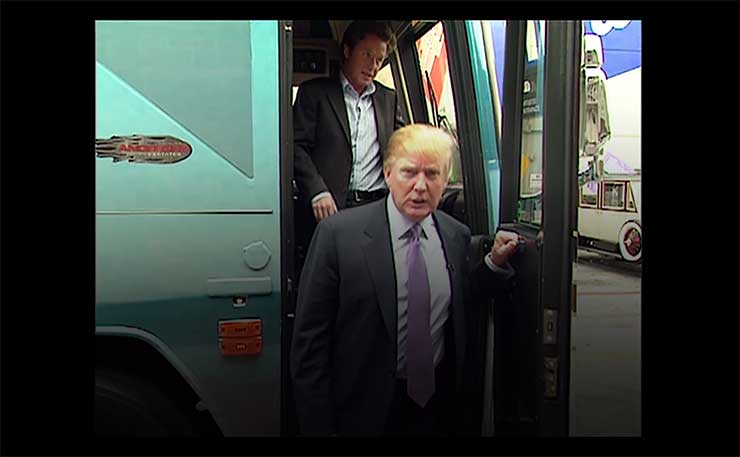
The other the grotesque progeny of four decades of obscene capitalist excess: a multiple bankrupt property developer, pathological liar, fabulist, narcissist, sexual predator and the apotheosis of the stupid rich.
Both heirs to large fortunes, both earnest patriots notable for their tax avoidance, both seemingly devoid of any principles and values beyond that of holding power, and both afflicted with a sense of personal superiority that far exceeds their real-world capacities.
In the face of the ensuing debacle, the disbelief of a public strongly interpolated into the myth of the meritorious rich is palpable. The stupid/idle rich are back in the spotlight, screwing up as only they know how, and bundling them back in the cupboard is now going to be that much harder.
Donate To New Matilda
New Matilda is a small, independent media outlet. We survive through reader contributions, and never losing a lawsuit. If you got something from this article, giving something back helps us to continue speaking truth to power. Every little bit counts.

